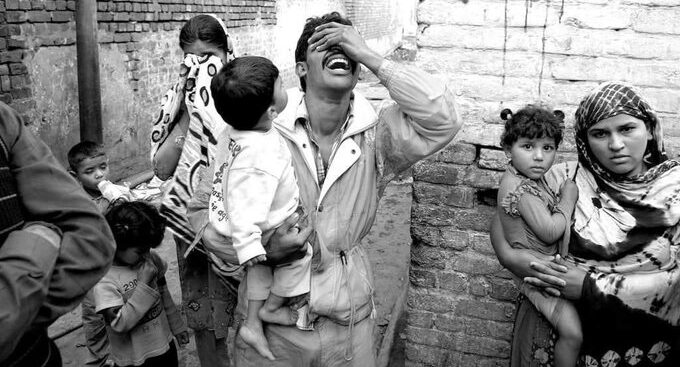In the town of Sahiwal, a harrowing verdict has emerged from the anti-terrorism court (ATC). A young Christian man has been condemned to death, accused of sharing a social media post that ignited devastating riots in Jaranwala last August. The judgment, delivered by ATC Special Judge Ziaullah Khan, also imposed a 22-year prison sentence and a staggering fine of Rs1 million.
The aftermath of the alleged incident saw an outpouring of violence that scarred the community. Dozens of Christian homes were ravaged, and nearly 20 churches desecrated by furious mobs. The catalyst? A claim that a copy of the Holy Quran had been defiled, sparking an eruption of anger and chaos.
Despite the brutality of the riots, the pursuit of justice has been mired in controversy. Punjab police initially announced that around 135 individuals had been apprehended for their roles in the attacks. Yet, as Advocate Akmal Bhatti, chairman of the Minorities Alliance, painfully points out, the majority of these suspects have since been released, either discharged or granted bail. A mere twelve are currently standing trial, casting a shadow over the commitment to accountability.
The young man’s case is particularly poignant in light of recent events. In March, a Faisalabad ATC exonerated two Christian brothers who had been wrongfully accused of blasphemy—victims of personal vendettas masked as religious outrage. Their acquittal followed a police investigation that revealed the sinister motives behind their framing.
Sub-Inspector Amir Farooq of Dera Rahim police complained the convict, accusing him of circulating blasphemous content on TikTok. Although the youth did not create the content, its dissemination led to his swift arrest and subsequent conviction. The court’s final judgment delivered a severe and multifaceted sentence: death and a Rs500,000 fine under Section 295(C), a decade of rigorous imprisonment under Section 295(A), seven years under the Prevention of Electronic Crimes Act, and an additional five years plus another Rs500,000 fine under the Anti-Terrorism Act.
As the young man’s fate hangs in the balance, the broader questions of justice, communal harmony, and the treatment of minority communities in Pakistan loom large, casting a somber reflection on the nation’s legal and societal landscape.
